Objectives
- To provide a comprehensive guideline making ethical decisions.
- Examine the importance of creating a balance between making profits and customer satisfaction.
- To introduce guidelines for decision making in instances where profit is at stake.
- To introduce ethical framework relevant to the described scenario.
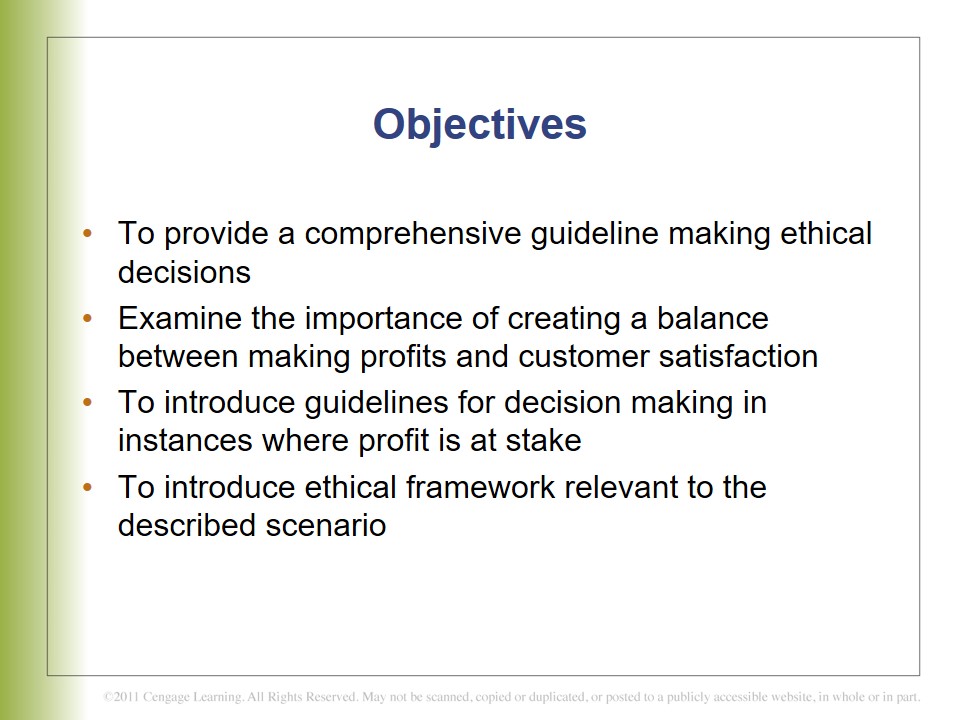
Case summary
- The case involves two service providers: Flex Technologies Ltd., and a Spanish Corporation, Seguroware.
- The client is Replicant Insurance.
- The ethical issue affects Flex Technologies.
- Available options include going it alone on the work or partnering with Flex Technologies.
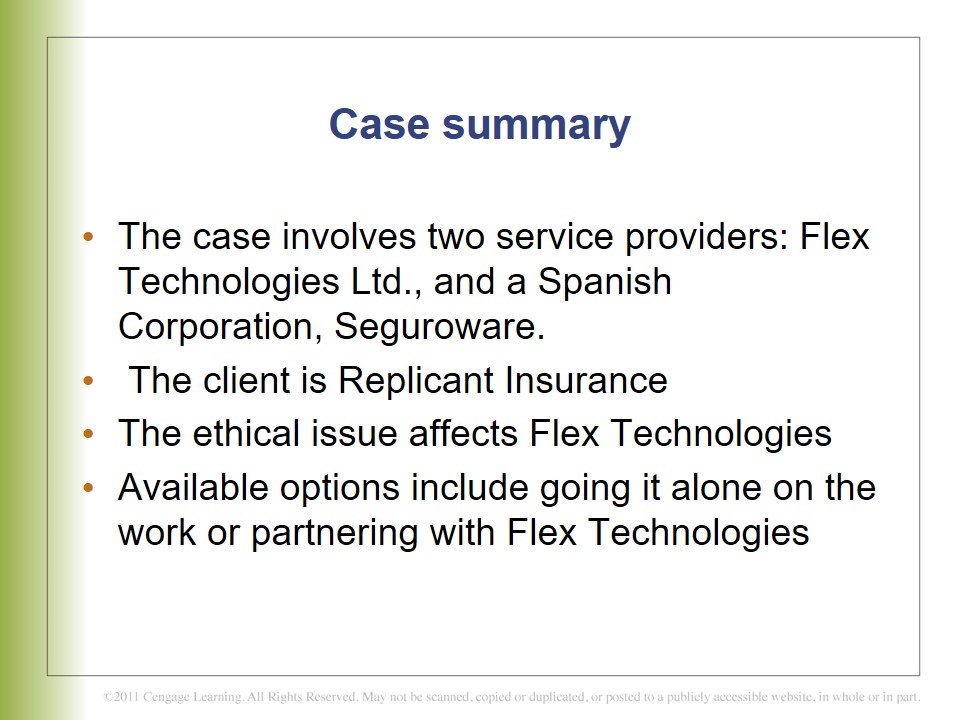
Ethical Issue
- If Flex Technologies handles the work alone, it gets to keep all the profits but service quality may be compromised.
- If Flex Technologies partners with Seguroware, profit is reduced by 50% but service delivery wit be excellent and guaranteed to be satisfactory to the client.
Which way, Get more profit and risk client complaints or get lesser profit and guarantee client satisfaction?
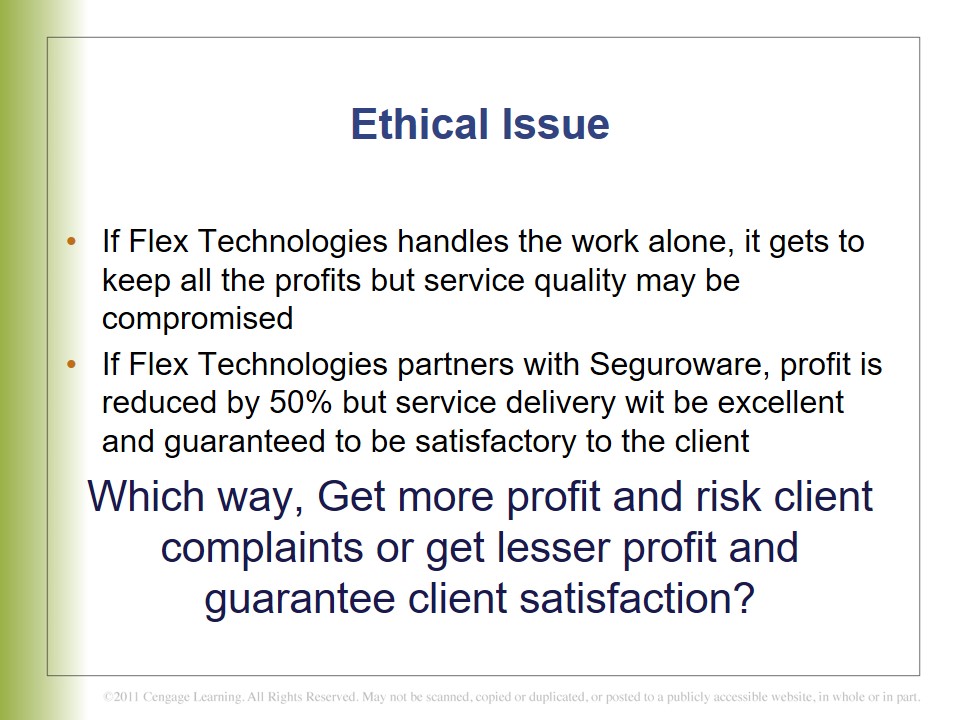
Duty and Code of Ethics
- Duty of care
- The code of ethics should protect the interest of all the parties involved,
- Applicable code of ethics states that, “Engineers are expected to offer services only in areas where they are competence (American Society of Civil Engineers n.p).
Canon 3
Engineers shall issue public statements only in an objective and truthful manner.
- Engineers should endeavor to extend the public knowledge of engineering and sustainable development, and shall not participate in the dissemination of untrue, unfair or exaggerated statements regarding engineering.
- Engineers shall be objective and truthful in professional reports, statements, or testimony. They shall include all relevant and pertinent information in such reports, statements, or testimony.
- Engineers, when serving as expert witnesses, shall express an engineering opinion only when it is founded upon adequate knowledge of the facts, upon a background of technical competence, and upon honest conviction.
- Engineers shall issue no statements, criticisms, or arguments on engineering matters which are inspired or paid for by interested parties, unless they indicate on whose behalf the statements are made.
- Engineers shall be dignified and modest in explaining their work and merit, and will avoid any act tending to promote their own interests at the expense of the integrity, honor and dignity of the profession.
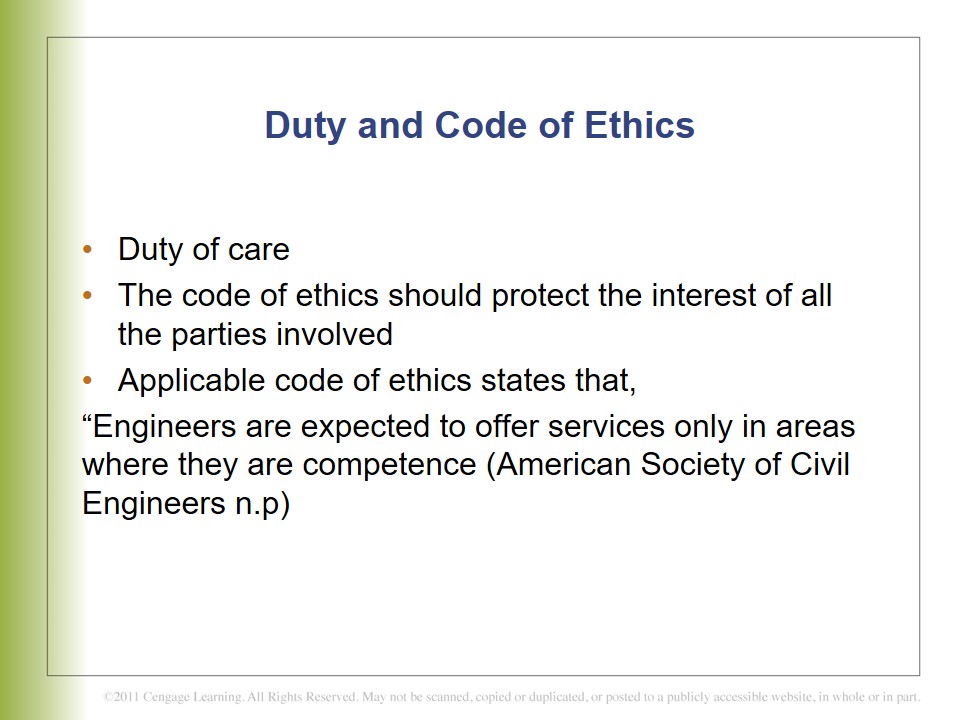
Using the Framework to Improve Ethical Decisions
- It makes it possible to objectively determine right decision and wrong;
- Ethical decision-making does not fully rely on the personal values and morals of individuals;
- Proposed ethical framework are:
- Utilitarian approach;
- Rights approach.
The Utilitarian Approach
The approach emphasize that ethical actions are those actions which provides maximum good or poses minimum harm.
The Rights Approach
Philosophers suggested an ethical action as being one that best protects and respects moral rights of affected parties.
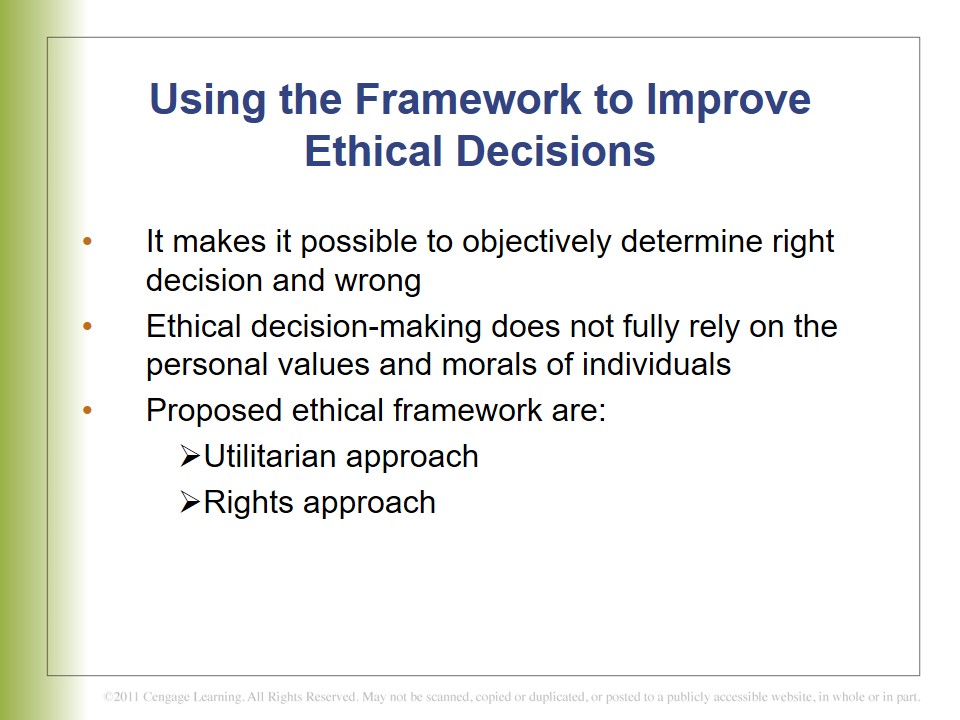
Recommendation
The recommended decision is for Flex Technologies Ltd. To focus on delivering best quality to Replicant Insurance within reasonable time by partnering with Seguroware although this would lower its profits by 50%.
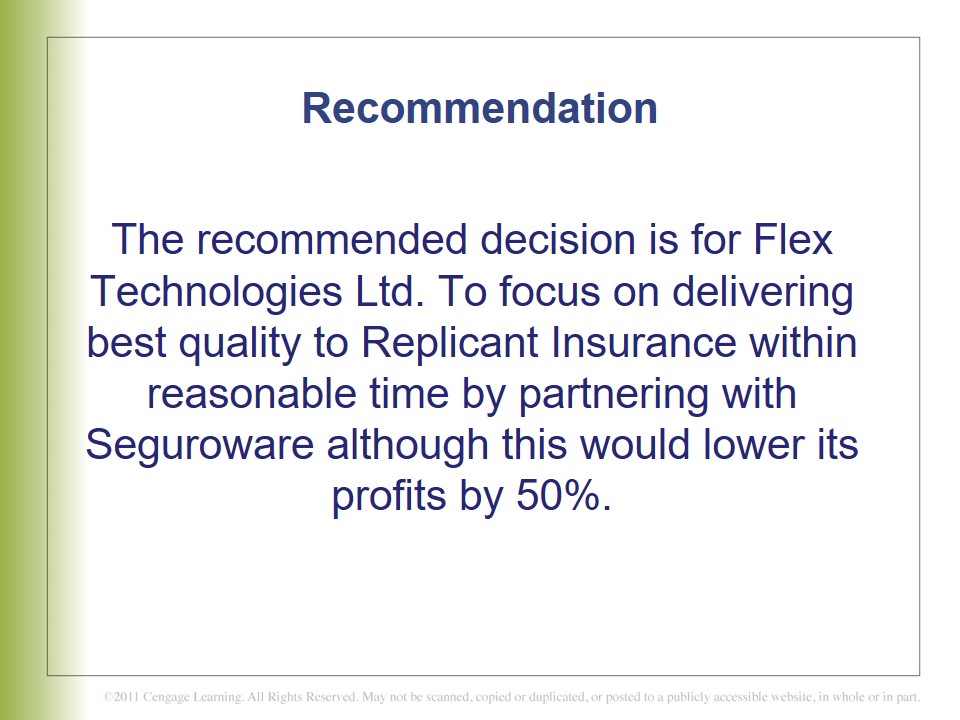
Works Cited
American Society of Civil Engineers. Code of Ethics. 2006. Web.
Anscombe, Gerald. “Modern Moral Philosophy”. Philosophy 33.124 (2008): 1–19. Print.
Coon, Dennis. Introduction to psychology: exploration and application. St. Paul: West Pub. Co., 2010, pp. 476–478. Print.
Mackie, Jeremy. Ethics: Inventing Right and Wrong. London: Penguin, 2011. Print.
Miller, Carrick. “The Conditions of Moral Realism.” The Journal of Philosophical Research 34.6 (2009): 123-155. Print.